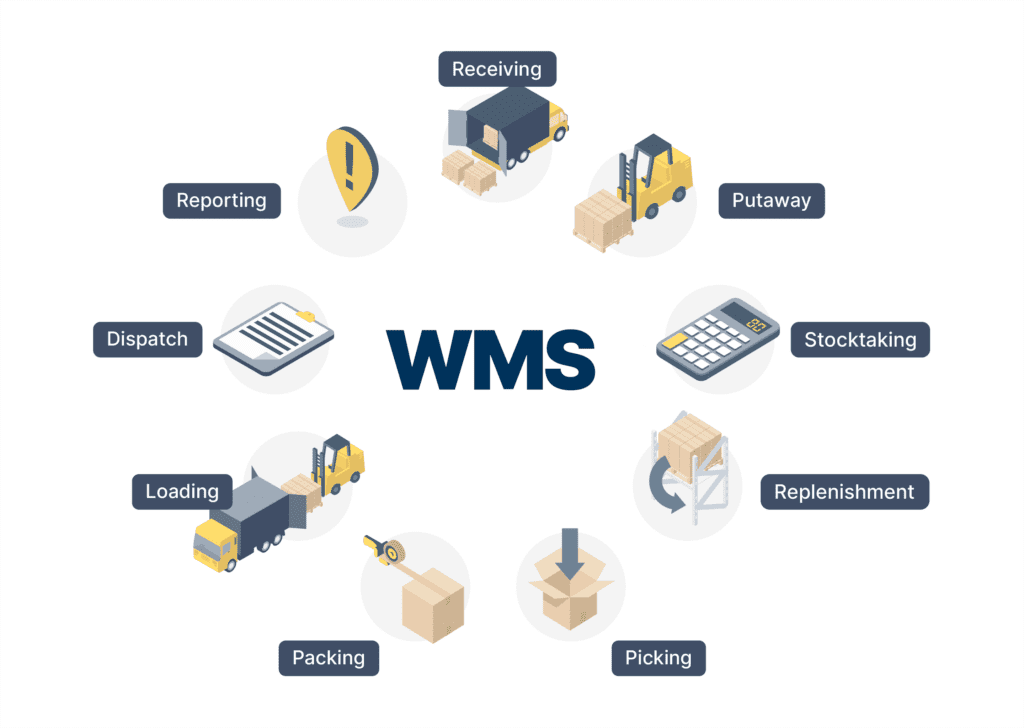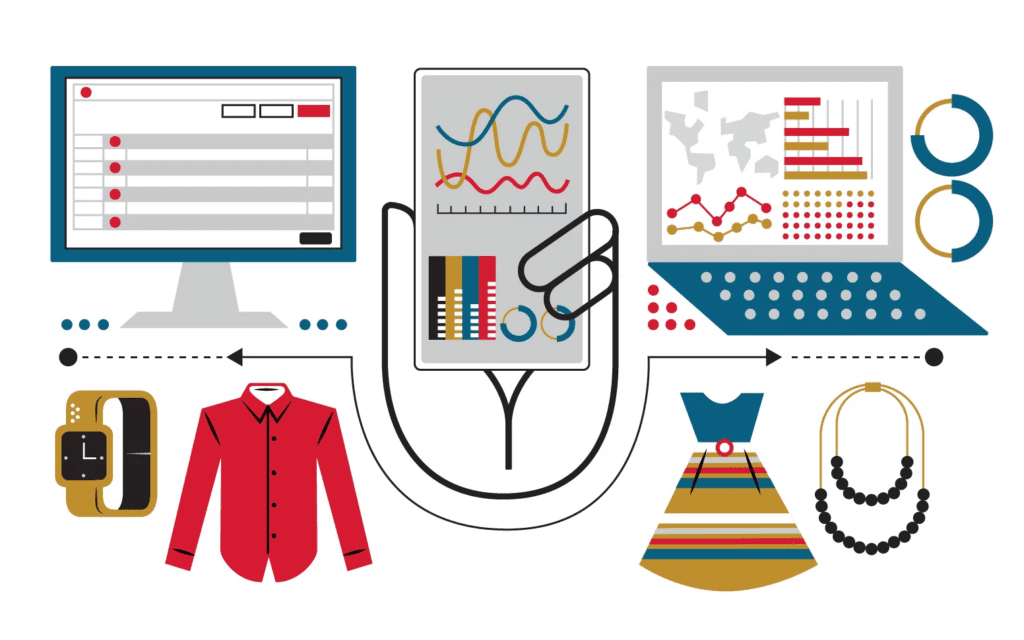
In the fast-paced world of e-commerce, efficient order fulfillment is a key factor in satisfying customers and gaining a competitive edge. As consumer expectations for faster delivery and seamless experiences rise, businesses must adopt advanced technology solutions to optimize their processes. In this article, we explore the latest technology-driven strategies and solutions that can enhance fulfillment efficiency and boost customer satisfaction.
Automating Fulfillment with Warehouse Management Systems (WMS)

The Advantages of Warehouse Management Systems (WMS)
Efficient Order Processing
WMS automates order entry, verification, and processing, reducing the need for manual data entry and minimizing errors. By streamlining these tasks, businesses can process orders faster and deliver products to customers more promptly.
Real-time Inventory Visibility
WMS provides real-time visibility into inventory levels, locations, and movements. With accurate and up-to-date information, businesses can make informed decisions on restocking, order prioritization, and inventory optimization.
Optimized Order Picking
Warehouse Management Systems optimize the order picking process by generating the most efficient pick paths for warehouse staff. This eliminates unnecessary travel time and ensures that orders are fulfilled in the most efficient manner possible.
Enhancing Customer Experience
Automating fulfillment with WMS directly impacts the customer experience. Customers expect fast, accurate, and transparent order fulfillment. By adopting WMS, businesses can fulfill orders swiftly, reduce order inaccuracies, and provide real-time order tracking, leading to increased customer satisfaction and loyalty.
Order Accuracy and Error Reduction
Automated order processing with WMS reduces the risk of human errors during data entry and order fulfillment. Accurate order fulfillment enhances customer trust and minimizes costly returns or replacements due to errors.
Faster Order Fulfillment and Shipping
With optimized order picking and streamlined warehouse operations, businesses can fulfill orders faster and ship products promptly. This efficiency is especially crucial for meeting customer expectations for quick delivery, thereby gaining a competitive advantage.
Automating process with Warehouse Management Systems (WMS) is a strategic investment that drives efficiency, accuracy, and customer satisfaction. By harnessing technology such as order automation, real-time inventory visibility, barcode scanning, and RFID technology, businesses can streamline warehouse operations, reduce errors, and expedite order processing.
The Role of Artificial Intelligence in Fulfillment Processes

Demand Forecasting and Inventory Optimization
Demand Forecasting and Inventory Optimization
One of the key applications of AI in fulfillment is demand forecasting. AI algorithms analyze historical sales data, market trends, and external factors like weather patterns to predict future demand with remarkable accuracy. By forecasting demand, businesses can optimize inventory levels, ensure product availability, and prevent both overstocking and stockouts.
Benefits of AI-Driven Demand Forecasting
Reduced Inventory Costs: AI-driven demand forecasting helps businesses maintain leaner inventories, reducing carrying costs and minimizing the risk of unsold products.
Enhanced Customer Satisfaction: Accurate demand forecasting enables businesses to meet customer demands promptly, ensuring products are available when needed, thus improving customer satisfaction.
Efficient Order Routing and Fulfillment
AI plays a crucial role in optimizing order routing and fulfillment. AI algorithms can determine the most efficient fulfillment center or warehouse to process each order based on factors such as proximity to the customer, inventory availability, and shipping costs. This ensures that orders are processed and shipped from the location that minimizes delivery time and costs.
AI for Last-Mile Delivery
The last mile of delivery is often the most critical and challenging phase of fulfillment. AI-powered route optimization algorithms help delivery drivers find the most efficient delivery routes, considering factors like traffic, weather, and package volume. This results in faster deliveries, reduced fuel consumption, and lower transportation costs.
Personalized Customer Experience
AI enables businesses to provide personalized customer experiences in fulfillment. By analyzing customer data, AI can segment customers based on preferences, buying behavior, and location. Personalized recommendations and targeted offers improve customer engagement and loyalty.
AI-Driven Customer Service
AI-powered chatbots and virtual assistants enhance customer service in fulfillment. These intelligent systems can handle customer queries, order status inquiries, and returns processing efficiently, reducing the need for manual customer support and providing 24/7 assistance.
Predictive Maintenance for Equipment and Machinery
In large-scale fulfillment centers, AI can monitor equipment and machinery in real-time. AI-powered predictive maintenance detects anomalies, potential breakdowns, or maintenance needs before they happen, preventing costly downtime and ensuring smooth operations.
Improved Operational Efficiency
By automating various aspects of fulfillment, AI streamlines operations and reduces manual intervention. This increased efficiency not only lowers labor costs but also improves overall productivity, allowing businesses to process a higher volume of orders without compromising accuracy or speed.
Fulfillment Software: Tools for Efficiency and Accuracy

The Advantages of Fulfillment Software
Automated Order Processing
Fulfillment software automates the entire order processing workflow, from order entry to shipment. This automation reduces manual data entry, minimizes errors, and accelerates order fulfillment, leading to faster delivery times.
Real-time Inventory Management
A robust fulfillment software provides real-time visibility into inventory levels, ensuring businesses have an accurate view of stock availability. This prevents stockouts, optimizes inventory levels, and improves overall inventory management efficiency.
Multi-channel Integration
Fulfillment software seamlessly integrates with multiple sales channels, such as e-commerce platforms and marketplaces. This integration enables businesses to centralize order data, streamline order processing, and maintain consistency across all channels.
Order Processing Automation
- Order Entry Automation: Fulfillment software automatically captures and processes incoming orders, eliminating the need for manual order entry. This reduces data entry errors and speeds up the order processing cycle.
- Order Verification and Validation: The software verifies order details, such as product SKUs, quantities, and shipping addresses, to ensure accuracy before the order is processed for it.
Inventory Management and Optimization
- Real-time Inventory Updates: Fulfillment software provides real-time inventory updates, ensuring businesses have up-to-date information on stock levels and product availability.
- Inventory Tracking: The software tracks the movement of inventory within the warehouse, providing insights into product locations, pick paths, and order status.
- Inventory Replenishment: Based on real-time inventory data and demand forecasting, the software triggers automated replenishment alerts to ensure products are restocked promptly.
Shipping Carrier Integration
- Shipping Rate Comparison: Fulfillment software integrates with multiple shipping carriers, allowing businesses to compare shipping rates and select the most cost-effective and efficient shipping options for each order.
- Shipping Label Generation: The software generates shipping labels automatically, minimizing manual effort and ensuring accurate shipping information.
Shipping Label Generation: The software generates shipping labels automatically, minimizing manual effort and ensuring accurate shipping information.
By automating order processing, providing real-time inventory management, and seamlessly integrating with various sales channels and shipping carriers, fulfillment software empowers businesses to meet customer expectations and deliver a superior shopping experience.